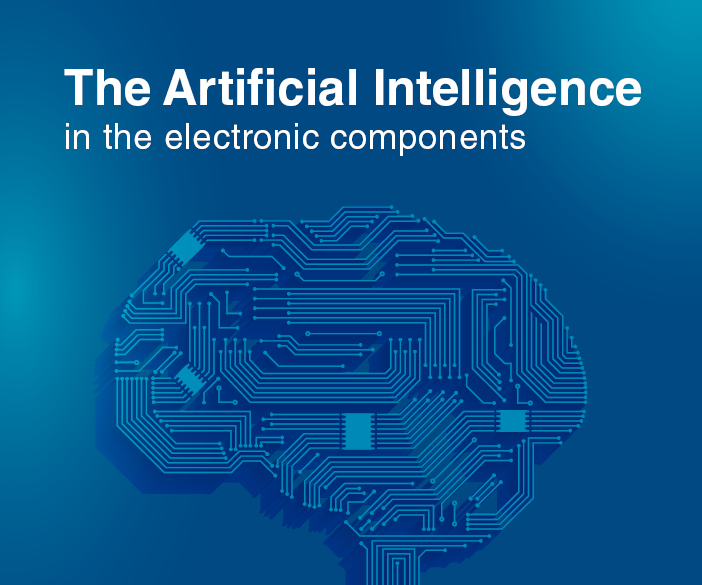
The role of the artificial intelligence in the electronic components
Thanks to the increase in computing and storage power, as well as advances in algorithms, artificial intelligence (AI) is becoming more and more important in the manufacturing industry.
Many companies are integrating AI in their management processes to increase the productivity and minimize costs.
One of the sectors that could take lots of advantages from AI is the electronics, both in terms of supply chain management and the production process of individual components. Using AI can bring many benefits, such as improving controls on the defective production, assisting in the creation of emergency management strategies and reducing the need to deploy manpower for basic and repetitive tasks.
AI is expected to become essential for electronic manufacturing, especially for the process optimization. Its main functions will be, in fact, to allow the company to save materials and to automate quality control.
For example, the AI can assist in the identification and removal of defective units before they enter in the production process, filling a place on the assembly line that could be allocated for a functional unit.
In particular, the solutions based on artificial intelligence allow to use data and sensors to carry out this type of activity, analyzing a greater number of information than static and coded algorithms.
By integrating a predictive AI model into management, it is possible to analyze data in real time and alert the user in case of specific drive defects, enabling preventive measures to be taken, such as drive replacement or machine recalibration. In this way, traditional quality control processes are bypassed, resulting in significant savings in time, energy and cash.
In electronic production, the problems that require innovative solutions also concern the supply chain. The high unreliability that distinguishes the shipments in the actual contest has in fact led the companies to adapt instruments that can minimize the inefficiencies.
Inventory management and replenishment planning can benefit greatly from AI. For example, predictive algorithms can provide real-time updates on the status of logistics channels, while machine learning can help optimize inventory management.
More efficient inventory management, structured replenishment planning, and accurate demand forecasting can make a significant contribution to electronic component manufacturers in achieving measurable productivity and production growth.

